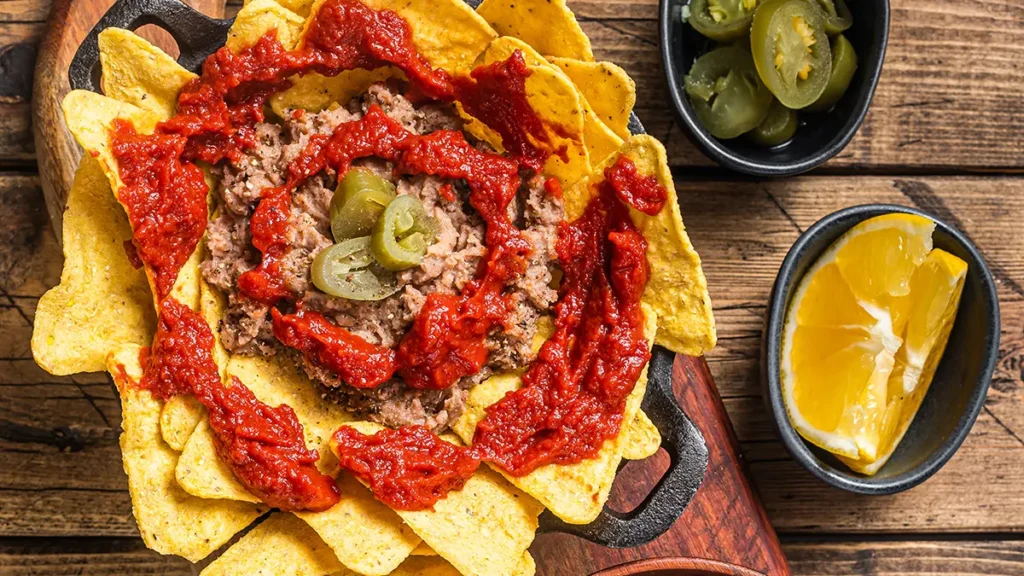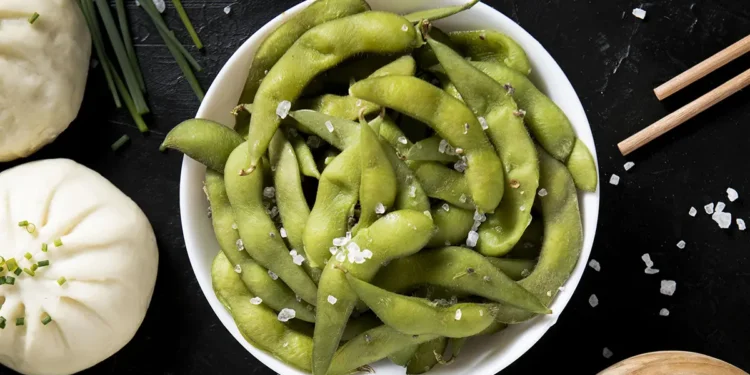Beans are rich in plant-based protein, making them an excellent alternative to meat. The health benefits of beans are that they are also high in dietary fibre, which aids digestion and helps maintain a healthy gut. Additionally, beans are a good source of essential vitamins and minerals, including iron, magnesium, and folate. Their low glycaemic index means they release energy slowly, helping to regulate blood sugar levels.
Heart Health
Regular consumption of beans has been linked to improved heart health. The soluble fibre in beans can help lower LDL cholesterol levels, reducing the risk of heart disease. Moreover, the potassium content in beans supports healthy blood pressure levels.
Weight Management
Beans are low in fat and high in fibre and protein, which can promote feelings of fullness and reduce overall calorie intake. This makes them a valuable food for weight management and obesity prevention.
Environmental Sustainability
Beans are not only good for your health but also for the planet. They require less water and land to produce compared to animal-based proteins and contribute to lower greenhouse gas emissions. Incorporating more beans into your diet is a step towards more sustainable eating habits.

Popular Bean Varieties and How to Enjoy Them
Black Beans
Black beans are known for their rich, earthy flavour and dense texture. They are high in protein and fibre, and their dark colour indicates a high antioxidant content.
Serving Suggestions: Add black beans to stews, soups, and salads. They also make a great base for veggie burgers or can be mashed for spreads.
Pinto Beans
Pinto beans have a creamy texture and are commonly used in Mexican cuisine. They are an excellent source of protein and fibre, and they contain significant amounts of iron and magnesium.
Serving Suggestions: Use pinto beans in chilli, burritos, or mash them for refried beans. They also pair well with rice and vegetables for a hearty meal.
Chickpeas
Chickpeas, or garbanzo beans, are incredibly versatile and packed with nutrients. They provide a substantial amount of protein and fibre, along with essential vitamins and minerals like folate and iron.
Serving Suggestions: Blend chickpeas into hummus, roast them for a crunchy snack, or add them to salads and curries.
Edamame
Edamame are young soybeans, harvested before they harden. They are rich in protein, fibre, and a variety of vitamins and minerals, including folate and vitamin K.
Serving Suggestions: Enjoy edamame steamed with a sprinkle of sea salt, toss them into salads, or add them to stir-fries for a protein boost.
Incorporating Beans into Your Meals
Adding beans to your diet doesn’t have to be complicated. Here are some simple ways to enjoy them:
- Salads: Toss beans into your favourite salads for added protein and texture.
- Soups and Stews: Beans add heartiness and nutrition to soups and stews.
- Spreads and Dips: Blend beans into spreads like hummus or bean dips.
- Main Dishes: Use beans as the main protein in dishes like chilli, tacos, or casseroles.
FAQs About Beans
Q: Are canned beans as nutritious as dried beans?
A: Yes, canned beans retain most of their nutrients. However, it’s advisable to rinse them to reduce sodium content.
Q: Can beans cause digestive discomfort?
A: Beans contain oligosaccharides, which can cause gas. Soaking dried beans and rinsing canned beans can help reduce this effect.
Q: How often should I eat beans?
A: Incorporating beans into your meals several times a week can provide health benefits. The health benefits of beans are that they are a great source of plant-based protein and fibre.










